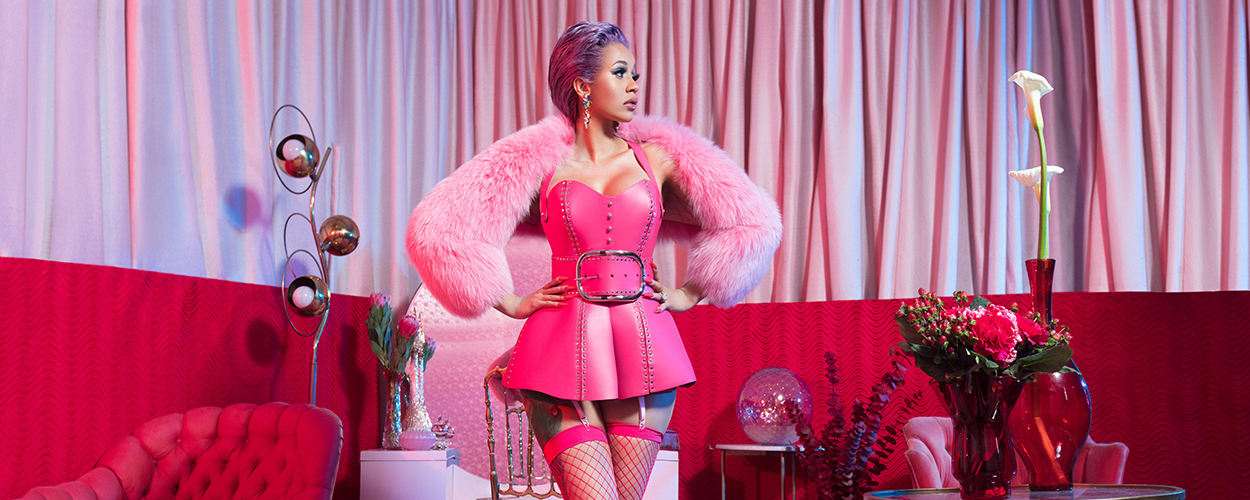This website uses cookies so that we can provide you with the best user experience possible. Cookie information is stored in your browser and performs functions such as recognising you when you return to our website and helping our team to understand which sections of the website you find most interesting and useful.
Artist News Business News Labels & Publishers Legal
Model suing Cardi B wants to bring up mixtape royalties in court
By Chris Cooke | Published on Thursday 16 December 2021

The model suing Cardi B over the artwork on her 2016 mixtape ‘Gangsta Bitch Music Vol 1’ has asked the court to allow him to discuss the rapper’s earnings from that release when the dispute is argued out in front of a jury next year. Her legal team have already objected to such figures being shared with jurors.
The rapper – real name Belcalis Almánzar – is being sued by model Kevin Brophy over what he says is the unauthorised use of his image on the cover of her 2016 mixtape.
That image was inserted into the artwork so that it appeared as if Brophy was performing oral sex on the rapper. You can’t actually see Brophy’s face, but he argues that his distinctive back tattoos made it super obvious that it was him in the image. And that infringed his so called publicity rights under Californian law, his lawsuit claimed.
Almánzar tried to have the case dismissed, arguing that the designer who created the artwork significantly altered the original photo of Brophy’s back. Therefore, the use of the photo was “transformative fair use” and not an infringement of Brophy’s publicity rights. However, the judge overseeing the case declined to dismiss the litigation in late 2020, and the whole matter is now due to go before a jury next February.
That said, although the judge declined to dismiss Brophy’s lawsuit, he did exclude the testimony of an expert witness working for the model regarding how damages might be awarded in the case. According to Law360, that expert, Doug Bania, “attributed all of Cardi B’s album revenue to the tattoo’s use on the cover, but the judge said a jury could only award damages directly attributable to the use of Brophy’s image”.
It’s with that in mind that Almánzar’s team is now trying to stop Brophy from discussing her ‘Gangsta Bitch Music Vol 1’ royalties when the case gets to court, arguing that doing so raises similar concerns to those which led to Bania’s testimony being excluded. And, therefore, allowing Brophy to discuss Almánzar’s royalties, but without an expert, is basically “giving him a second bite at the apple, after Mr Bania’s overreaching first attempt was rejected”.
However, in a new filing with the court, Brophy’s reps state: “Defendants assert that the evidence of their income is irrelevant because it will not be presented by an expert, and that it is prejudicial because the amount will allegedly ‘desensitise’ the jury. They are incorrect”.
“The evidence of defendants’ royalties earned is relevant and admissible because it supports plaintiff’s statutory remedy of disgorgement of profits earned from the unlawful use”, the filing adds. “The law does not require an expert to prove profits attributable to the wrongful use. Plaintiff may carry his burden of proving the causal nexus without an expert, and with circumstantial evidence”.
“The evidence is also relevant and admissible for other reasons”, it goes on. “It shows defendants’ continuing and knowing use of plaintiff’s likeness without his consent, it shows defendants’ ongoing commercial exploitation, it shows defendants’ profit motive in continuing to use plaintiff’s likeness, including after defendants’ ignored cease and desist letter sent to them, and it shows defendants’ malicious conduct that supports plaintiff’s request for punitive damages”.
It remains to be seen how the judge rules on this.





